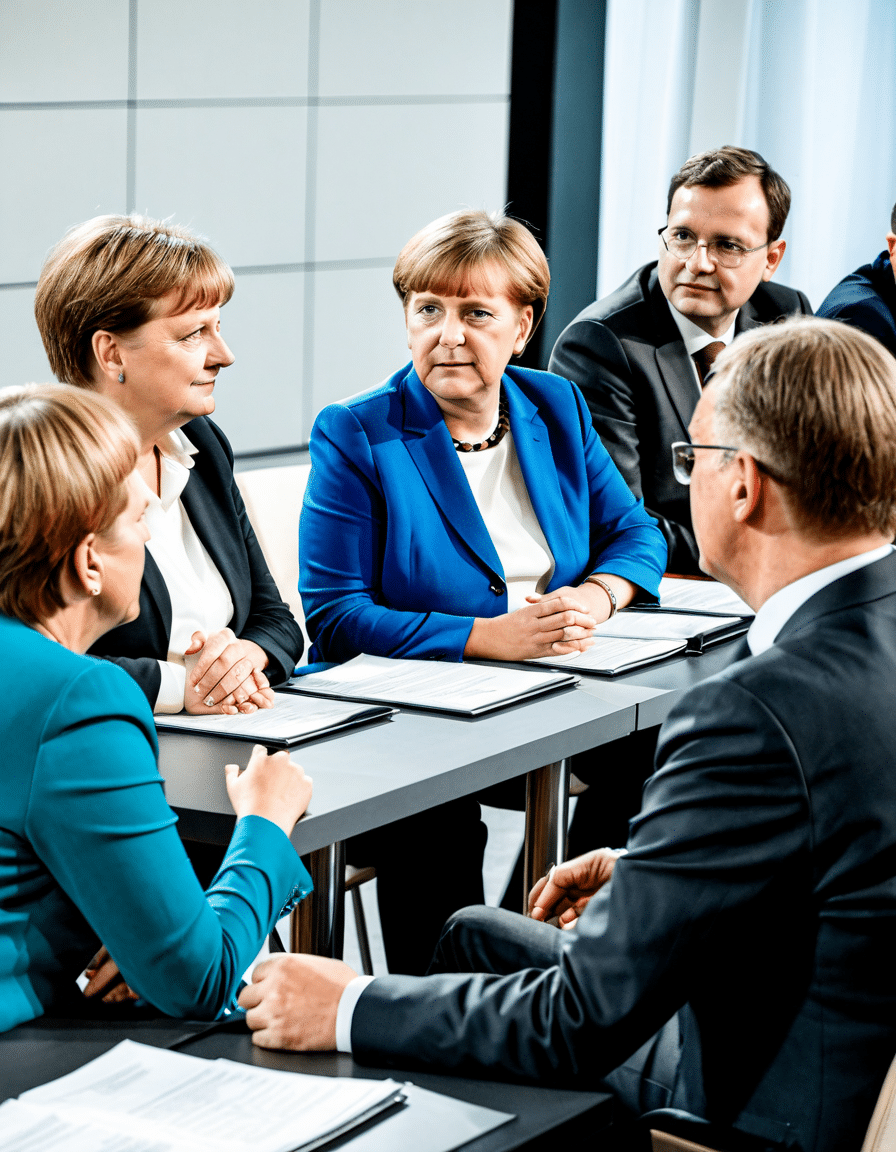In the evolving landscape of contemporary German politics, the Alternative for Germany (AfD) party has emerged as a defining force that challenges the status quo and prompts vigorous discussions across the nation. As we look ahead to 2026, the AfD’s influence raises pivotal questions about its role in sculpting the future political landscape of both Germany and Europe. Understanding the dynamics at play is essential for anyone invested in the broader implications for democracy and civic life today.

Top 5 Factors Illustrating the Alternative for Germany’s Influence
1. Populism and Its Appeal in Modern Germany
The AfD stands as a hallmark of the populist movements that have surged across Europe, offering a clear alternative to established political entities. They are tapping into a national sentiment that often strays into skepticism about globalization. Many voters, feeling neglected in a post-industrial economy, find the party’s messaging relatable and appealing.
The AfD’s adept use of social media has broadened its reach considerably. They engage younger demographics—those who are feeling disillusioned with traditional parties. This digital strategy not only amplifies the party’s sentiments but also creates a community around shared frustrations over lost jobs and changing cultural landscapes.
2. Freedom House Reports: Evaluating Democratic Stability
The recent reports from Freedom House have raised alarms about the potential threats to democratic institutions stemming from the rise of populist parties like the AfD. Highlighting the erosion of media independence and civil liberties, these analyses underscore serious concerns as the AfD’s populist rhetoric continues to gain traction among the populace.
The AfD’s rise isn’t just a local phenomenon but a reflection of a wider challenge to established democratic norms across Europe. As the party seeks to redefine governance and civil society, it calls for an urgent need to evaluate the future of democracy in Germany and beyond. Citizens and institutions alike must remain vigilant in protecting the principles on which the nation was built.
3. Union Berlin and Grassroots Mobilization
Union Berlin’s vibrant football fan community presents an intriguing landscape for examining Germany’s political climate. Supporters within this community have actively countered the AfD’s rising influence by organizing protests that promote inclusivity and diversity. Their chants and banners echo a collective determination not to let far-right ideologies take root.
This grassroots resistance serves as a telling example of society’s broader struggle against the populist narrative. The fans of Union Berlin are not just passionate about football; they are equally committed to protecting the values of openness and tolerance. This fervor showcases the potential for mobilized citizen action to counter daunting political currents.
4. Transgender Day: Culture Wars and Political Implications
The recognition of Transgender Day has unfolded as a pivotal cultural battleground, directly interacting with the AfD’s conservative socio-cultural policies. These policies often challenge advancements in LGBTQ+ rights, marking a stark contrast to progressive movements within Germany. In attempting to restrict what they perceive as ‘gender ideology,’ the party fosters tensions within society.
The backlash from within the LGBTQ+ community and allies indicates a significant cultural divide that plays into broader electoral politics. As these cultural issues increasingly intertwine with political discourse, the stakes get higher, illustrating how personal identities can become focal points in larger ideological battles.
5. Influences from Global Movements: The Williamsburg Bridge and Bourbon Street Connections
When we draw a comparison between global movements, the symbolic connections from the Williamsburg Bridge in New York to the lively streets of Bourbon Street in New Orleans illustrate a universal frustration among disenfranchised communities. Just as cultural autonomy movements in the U.S. push against the established order, the AfD articulates a similar discontent within Germany.
These parallels reveal how populist sentiments resonate worldwide, suggesting that the AfD’s messaging is part of a larger narrative of resistance against perceived neglect by political elites. Understanding this interconnectedness may provide key insights into the origins of the AfD’s support, as well as the broader global conversation around democracy and representation.
Strategies and Tactics: The AfD’s Vision for Germany
As the AfD cements its role in German politics, it has embarked on significant rebranding efforts to emphasize themes like national security and economic revitalization. By suggesting that traditional parties are ill-equipped to address pressing socio-economic issues, they position themselves as a viable alternative for voters searching for substantial change.
This approach resonates with a diverse array of voters, from working-class citizens entangled in economic precarity to older generations yearning for a return to conservative values. The AfD’s narrative makes it easier for these groups to rally behind their cause, ultimately expanding the party’s appeal.

The Road Ahead: Navigating Uncertainty and Division
As Germany ventures into a future shaped by the Alternative for Germany, the party’s controversial stances highlight continuing divisions within the country and across Europe. Upcoming election cycles will significantly influence whether the AfD’s power consolidates or diminishes, as mainstream parties work to adapt or push back against the rise of populism.
The nation’s political journey hinges on its capacity to confront these challenges head-on. How voters respond, the dynamics between parties, and the broader socio-political atmosphere will collectively craft the narrative that unfolds. Engaging in open dialogue and addressing complex issues with care will be vital for Germany as it strives to redefine itself. The outcome will ultimately dictate what being a progressive nation means amid upheaval and division.
In the face of uncertainty, the call for unity and inclusivity grows louder. Engaging with the public in meaningful discussions about the future of German democracy is essential for forging a path that resonates with all citizens, ensuring a brighter and more inclusive vision for generations to come.
Alternative for Germany: Fun Trivia and Interesting Facts
A Brief Look at the Party’s Origins
The Alternative for Germany (AfD) first emerged in 2013, initially as a euro-skeptic party. It quickly transformed, morphing into a force challenging conventional political norms in Germany. Interestingly, while AfD gained traction, other movements in Europe have taken shape, just as the Women’s College World Series has showcased female talent on big stages, elevating their roles in sports and society. Speaking of showing talent, actress Gina Rodriguez has starred in various movies and TV shows where she champions strong narratives, echoing themes of empowerment seen in many political movements.
The Rise of Nationalism
Over the years, AfD has capitalized on rising nationalism and skepticism toward immigration policies. This shift in the political landscape resonates with changing sentiments across Europe, reminiscent of recent Michigan primary results that highlighted voter discontent and shifts in party loyalties. The party’s ability to interface with disenchanted voters underscores its strategy to highlight issues often overlooked. As it turns out, the same disconnection can be seen in global politics, akin to reports from The Moscow Times, where citizens grapple with transparency and accountability.
Unique Strategies and Outreach
One of AfD’s distinctive strategies is directly addressing economic concerns, including an appeal for free higher education, akin to initiatives like the Albert Einstein College’s free tuition program. This tactic allows them to attract students and working-class individuals, creating a buzz around their campaigns. It’s a bit like the excitement surrounding the Kung Fu Panda 4 cast, where fresh faces ignite interest and engage younger audiences. Political parties, much like successful film franchises, need to stay relevant and relatable to appeal to the masses.
As the AfD continues to challenge mainstream politics, its strategies reflect broader trends in societal behaviors and perceptions. This constant give-and-take is crucial for any developing movement, as illustrated by the vibrant exchanges found in platforms like Facebook Marketplace Baltimore, where local activity hints at larger community trends. Interesting times lie ahead, and the Alternative for Germany may have more surprises up its sleeve.




